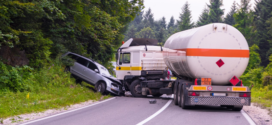
The oil industry remains vital despite the inexorable rise of clean energy. The industry that provides that oil, however, remains hazardous. As The Guardian highlights, more American oil rig workers died on the job from 2008-2017 than soldiers did in Afghanistan, a clear demonstration of the dangers of rig life. Furthermore, investigations have shown the huge stress of the 12 hour shifts that the work demands, and the infringements often made on the private lives of those working on board. With production levels down owing to the pandemic, there is an invaluable opportunity to re-assess rig life and make it better for those involved.
Improving legal protections
The nature of offshore drilling puts it into murky legal territory. Operating offshore means that legal protections can be reduced, and drilling companies – who are often quite powerful politically – are able to hire high quality legal teams to challenge claims. Furthermore, the expediency of oil drilling creates risk as safety standards slip. The Globe and Mail have noted another increase in the oil industry jobs demand through January 2022, and this will only heighten that risk. However, private litigation is improving the situation. An offshore injury lawyer is someone who can legally help attain justice for offshore workers, and in the post-pandemic climate there’s more protections to help with cases; the courts are generally becoming a little more lenient.
Changing the work balance
The advancement of technology means that fewer workers are needed to operate drill projects and the maintenance of existing operations. This has presented an opportunity for rig operators to improve the work-life balance of employees currently on the rigs. As New Republic notes, the requirement for human labor is reducing, and that means more space can be made to support workers in their mental wellbeing while on the rigs. This is something that’s becoming increasingly important, both for the happiness of workers and for the safety of the rig.
Mental illness and mistakes
A study analyzed by tech media mag Digit found that oil workers were finding their personal mental health challenging. 23% of workers were experiencing mental exhaustion, up from rates that were previously much lower. Social isolation has always been a challenge of working offshore, but the pandemic, and the mental health epidemic, has made that even worse. Less congested and more relaxed station environments will help to promote mental health, and that’s good both for workers and for the station. Mentally fit and happy employees are less likely to make mistakes, and more likely to notice risks. Conversely, where stress is being experienced at a high level, deadly errors are more likely.
Improving the work/life balance of rig workers will, therefore, improve the productivity and safety of rigs. This is something of a positive feedback loop, and something that regulators and innovators should look to pursue more closely. Creating conditions in which the entire organization can flourish will benefit society as a whole, and improve the life of rig workers.
 Newspatrolling.com News cum Content Syndication Portal Online
Newspatrolling.com News cum Content Syndication Portal Online






